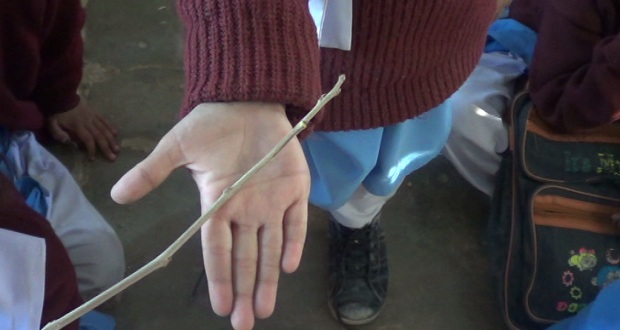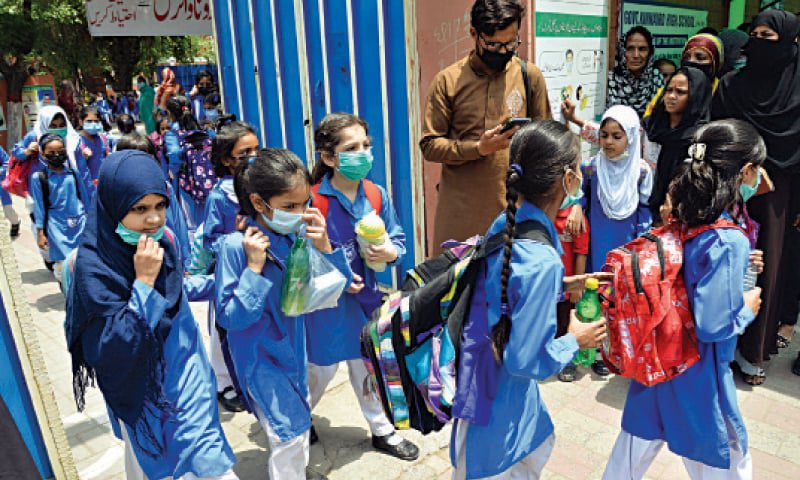The Punjab Education Department has once again made its position clear on a matter of great importance. The complete bans on corporal punishment in schools. A recent notification from the District Education Authority (DEA) in Mandi Bahauddin has reminded all teachers and school heads. That any form of physical or emotional abuse of students will not be tolerated under any circumstances.
This step is a continuation of the government strict zero tolerance policy aimed at ensuring that schools become safe, child friendly and inclusive learning environments for every student whether in public or private institutions. This renewed warning is not just a formal announcement.
It reflects the Punjab government determination to uphold the rights of children and to encourage a positive and respectful educational culture across the province. By drawing a line against corporal punishment. Because of the education department efforts students continue to feel valued, respected and motivated to succeed in the classroom.
Corporal Punishment Declared a Serious Violation
The notification states that any act of emotional or physical abuse will be regarded as a grave transgression of professional conduct and ethics. Teachers and staff who are found guilty will face harsh disciplinary action, according to the Punjab Employees Efficiency, Discipline and Accountability (PEEDA) Act of 2006.
The government has made it clear that such behavior will result in suspension. If proven during disciplinary proceedings will lead to permanent termination from service. This firm position emphasizes how crucial it is to defend children fundamental rights.
Schools is a places where students can develop intellectually, socially, and emotionally rather than instilling fear. Children can concentrate completely on their education and personal growth when they are not afraid of punishment.
Key Directives for Schools and Teachers
The Punjab Education Department’s circular outlined several mandatory instructions for school administrations and teaching staff. Also, the message was loud and clear: every school must comply with these directives without exception.
Among the main guidelines were:
- No physical or emotional punishment by teachers.
- School heads to hold awareness sessions.
- Classrooms must ensure respect and inclusivity.
- Misconduct must be reported with corrective actions.
- Principals held accountable for punishment cases.
- Focus on prevention and accountability.
Building Safe and Respectful Classrooms
The main goal behind this strict notification is not to create an atmosphere of fear among teachers. Also, the Goal is to transform the culture of classrooms across Punjab. Officials clarified that physical punishment has no beneficial effects on learning. Physical punishment causes students to become more fearful, resentful and anxious according to numerous studies. It will lead to lower academic performance and long term emotional harm.
In contrast when teachers use modern student centered teaching methods they are able to build stronger connections with students and create an atmosphere that encourages curiosity, critical thinking and self confidence. A supportive classroom environment built on respect and patience that benefits the students and also the teachers themselves as it enhances the overall teaching and learning experience.
Legal Background and Previous Efforts
- 2021 law bans corporal punishment in all institutions.
- Punjab enforces it through provincial rules and PEEDA Act.
- Cases still occur harming students and schools reputation.
- Education Department issues repeated warnings.
- Government stresses safe child friendly schools.
- Past efforts: training, campaigns, positive discipline.
- New directive ensures strict accountability.
Protecting the Rights of Children
Education specialists and child rights advocates have praised the Punjab Education Department latest warning. They think that in order to safeguard children rights and dignity this step is essential. In a classroom a child should never feel intimidated or degraded.
Empowering young minds increasing their self esteem and assisting them in realizing their potential should be the main goals of education. Additionally, experts have note down that emotional abuse such as humiliation or criticism can be just as damaging as physical punishment. Also, It leaves invisible scars that affect a child mental health and self confidence for years.
By banning both physical and emotional abuse the government is ensuring that the full spectrum of student well being is addressed. Furthermore, this approach reflects a modern understanding of education one that values compassion and respect as essential to learning.
Accountability for Non Compliance
The new notification leaves no room for negligence. Any disregard for the instructions will be met with immediate disciplinary action, the Education Department has warned. Teachers who use physical punishment run the risk of being suspended, fined, or even fired. Principals and school administrators are also responsible for misconduct.
They will have to prove that effective measures are in place in their institutions to prevent incidents of corporal punishment. To ensure compliance routine monitoring and inspections will also be carried out. This guarantees that the prohibition of corporal punishment is implemented in Punjabi classrooms and is not a policy on paper.
A Step Toward a Child Centered Education System
With this strong directive the Punjab government has reaffirmed its vision for a child-centered education system. Such a system places the child safety, respect and overall development at the heart of teaching practices. Moreover, the main focus is now on creating classrooms where learning is enjoyable and students are inspired to reach their full potential.
Teachers are also reminded by the renewed warning that their job is to teach knowledge and also to mold the future generation confidence and character. In the modern world the true tools of effective teaching are empathy, patience and positive reinforcement.
Parhlo Pakistan: Spreading Awareness Through Knowledge
At Parhlo Pakistan, we think that education has the ability to change people’s lives. Our platform is committed to giving parents, teachers, and students useful resources, information and updates regarding education in Pakistan. By drawing attention to significant changes, like the Punjab government ban on physical punishment.
Our objectives are raising awareness of children rights and fostering healthy learning environments. We want to support students academic success while advocating for educational institutions to embrace innovative, inclusive and progressive practices.
Conclusion
An effective and timely step toward creating a respectful educational system is the Punjab Education Department new warning against corporal punishment. By implementing a zero tolerance policy, holding principals and teachers responsible and promoting effective teaching strategies. The government is making sure that schools continue to be safe spaces for learning, development and empowerment.
Reforms centered on student welfare and child protection are crucial as Pakistan continues to modernize its educational system. Punjab makes it very evident that schools should inspire rather than frighten students. This directive moves us one step closer to ensuring that every child has the opportunity to learn in a secure setting.




